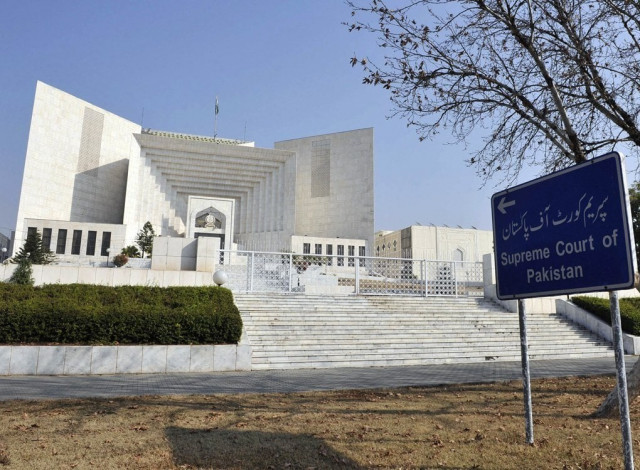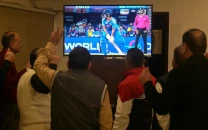Faizabad sit-in: Contempt of court petition filed in SC
Petition says top court order not implemented even after four years

A contempt of court petition was filed in the Supreme Court over non-implementation of the apex court’s verdict on Faizabad sit-in.
An application was filed on behalf of a citizen named Khalid Mehmood, in which the stance was adopted that the apex court had issued directives on the Faizabad sit-in on February 6, 2019, but to date, the court decision has not been implemented by any state institution.
The parties have deliberately not followed the clear orders of the top court, the petition added.
In its decision, the Supreme Court had given various instructions to the Ministry of Defence, PEMRA, ECP and security agencies, and federal and provincial governments.
The petition requested that contempt of court action be taken against those who did not implement the court’s decision. The Ministry of Defence, Ministry of Interior, security agencies and PEMRA have been made parties in the plea.
It should be noted here that a two-member bench comprising Justice Mushir Alam and Justice Qazi Faez Isa of the SC had issued a decision on February 6, 2019, over the suo motu notice taken on the Faizabad sit-in.
In its verdict, the top court had ordered action against the officers of the security agencies who participated in politics.
It was further directed that the police should make a plan to deal with sit-ins, PEMRA regulates the broadcasting of TV channels, sources of income of political parties be in accordance with the law and that action should be taken against those who issue decrees that hurt others.
All the security agencies were ordered to take action against the cable operators who block channels and monitor those working against the country within the legal framework.
In the decision of the apex court, the chiefs of the Pakistan armed forces were also ordered to take action on the interference of their officers in the political process.
The judgement had stated that any person who issues an edict or fatwa that "harms another or puts another in harm's way must be criminally prosecuted under the Pakistan Penal Code, the Anti-Terrorism Act, 1997, and/or the Prevention of Electronic Crimes Act, 2016."
The court noted that citizens have the right to form and be members of political parties, subject to "reasonable restrictions" imposed by the law.
Each citizen and political party retains the right to peaceful assembly and protest, as long as it complies with the "reasonable" legal restrictions "in the interest of public order".
"The right to assembly and protest is circumscribed only to the extent that it infringes on the fundamental rights of others, including their right to free movement and to hold and enjoy property."
The court asserted that "protesters who obstruct people's right to use roads and damage or destroy property must be proceeded against in accordance with the law and held accountable".
"The law is most certainly not cosmetic as contended on behalf of the ECP," the order said, adding: "All political parties have to account for the source of their funds in accordance with the law."
The judgement noted that the state's failure to "prosecute those at the highest echelons of the government who were responsible for the murder and attempted murder of peaceful citizens on the streets" of Karachi during the May 2007 lawyers' protests "set a bad precedent and encouraged others to resort to violence to achieve their agendas".
"The state must always act impartially and fairly. The law is applicable to all, including those who are in government and institutions must act independently of those in government," the court asserted.
The court also directed the federal and provincial governments "to monitor those advocating hate, extremism and terrorism and prosecute the perpetrators in accordance with law".


















COMMENTS
Comments are moderated and generally will be posted if they are on-topic and not abusive.
For more information, please see our Comments FAQ